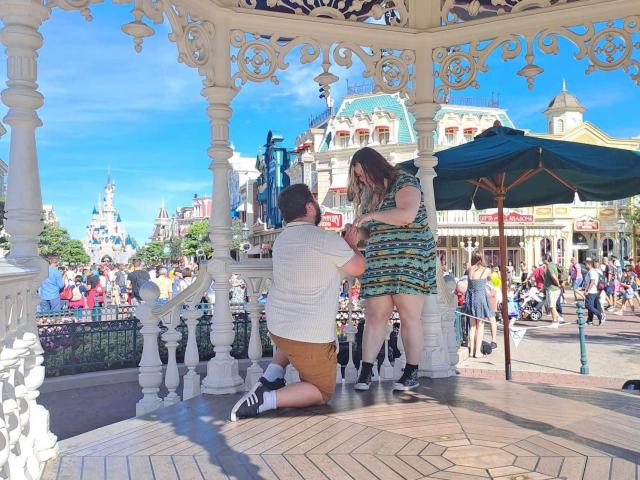
The nine unexpected joys of living with a rare disease
28 February
Today, 29 February, marks rare disease day. In Wales, there are more than 150,000 people with a rare disease and currently 90 of research studies open across the country looking into new treatments and care to improve their lives.
Georgina Ferguson-Glover, 25, lives with rare hypermobile Ehlers-Danlos syndrome (EDS) causing severe joint pain and daily dislocations. Despite the challenges posed by EDS, Georgina has discovered numerous reasons to celebrate and appreciate her life.
Here are the nine things she loves about her rare condition:
1. Taking part in research
Georgina feels empowered by participating in research. She has been able to take part in a collaborative study investigating children’s experiences with chronic pain and share her lived experiences of a rare disease with researchers.
“It’s a wonderful feeling. Being able to take part in various research studies, it feels like something positive is coming from my condition and my experiences will help others, like me, in the future.”
2. Helping shape research
Georgina has joined the Health and Care Research Wales public involvement community where she will use her lived experiences to shape new research studies, this means she could help researchers by commenting on patient information guides, giving feedback on the format of a study, like the timings of appointments or what language to use in each community.
“I am excited to provide support on studies in this way. I hope by sharing my lived experiences with researchers, I’ll get to help people like me.”
3. Relationships and friendships
Georgina's journey with EDS has strengthened her relationships, particularly with her fiancé Jack, who provides unwavering support and companionship through life's ups and downs. She’s also created meaningful friendships within the EDS community where people of all ages, from all around the world, support each other and share their experiences of living with the diagnosis.
“I co-run a support group with Krisanne Bradley to celebrate everyday achievements of people living with EDS.
“Whether you put your own socks on this morning or climb the mountain, we want to celebrate it with you.”
4. Free carer tickets to all events
Many attractions and facilities offer unpaid carers free entry if they are supporting a friend or family member who due to illness, disability, a mental health problem or an addiction cannot cope without their presence.
“My partner and I went to Disneyland Paris where the tickets are free for carers.
“He proposed in front of the Disney castle and two hundred other people.
“Of course, I said yes. It was my dream to be proposed to at Disneyland.”
5. Accessible facilities
Another one of Georgina’s joys is the convenience of disabled toilets which offer more space.
“Disabled toilets are very spacious, allowing me to move around easily without risking joint dislocations. And they are way cleaner than normal facilities.”
6. Eating out
Alongside EDS, Georgina also lives with over a hundred allergies, including various food items. However, Georgina has the freedom to choose from a wide range of options when dining out and can simply opt for alternative dishes when she is allergic to something on the set menu.
“I'm grateful restaurants make it so easy for me to swap dishes around so I can eat out without having to worry.
“My favourite place is called Brasserie Blanc. They have incredible staff who are always mindful of my allergies and offer me alternatives I can eat.”
7. Multifunctional wheelchair
“Because of my diagnoses I need to sleep 15 to 16 hours a day.
“It doesn’t matter where I am, it can be at the museum, park or just the shops. So, my wheelchair doubles as a portable nap chair in those situations.”
8. Fewer wrinkles (hopefully)
Many people with the EDS have soft, velvety skin due to the collagen in the skin being extra stretchy therefore many EDS patients might not have wrinkles as they age.
“My skincare routine only consists of putting on sunscreen.”
9. Kindness of people
“When people find out about my disabilities or see me in my wheelchair, they are often a lot more helpful and kind.
“People are quick to offer me help when they see me struggling to reach something for example.
“And they are always respectful about it, making sure they ask me if I am okay with receiving their help.”
Whether you're living with a rare condition or any other diagnosis much like Georgina, you can share in the joy of taking part and helping others through research. Sign up to our bulletin and receive weekly opportunities to support research in Wales to your inbox.